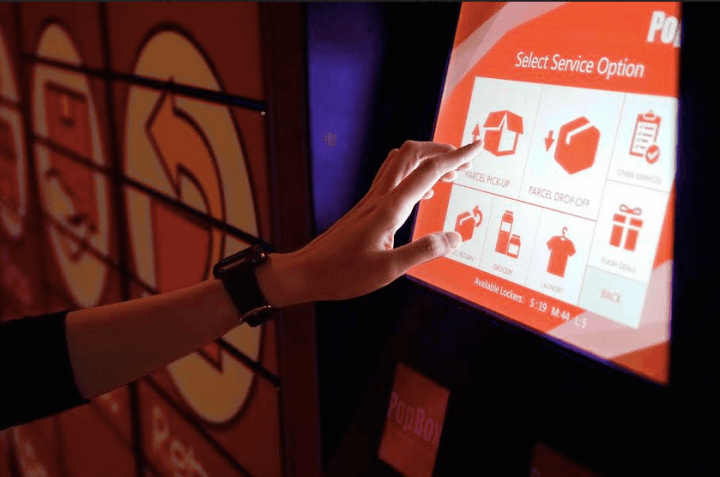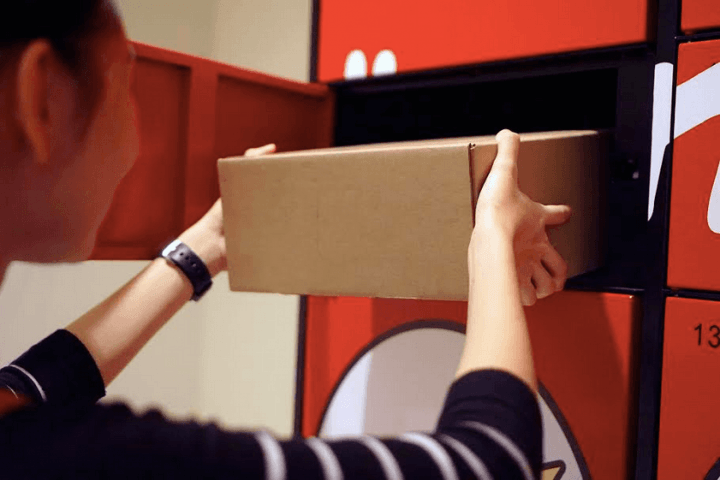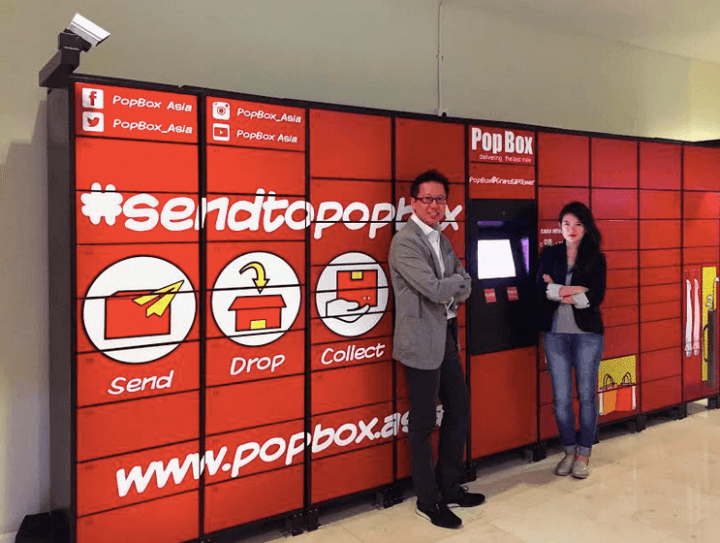
The Amazon Parcel Locker for Indonesia, PopBox Locks in Seed Funding from East Ventures
PopBox, an Indonesian startup that produces automated parcel lockers for last mile ecommerce deliveries, announced today it received a round of seed funding of an undisclosed amount from local VC firm East Ventures. The funding will support the company’s expansion of its locker network in Indonesia, as well as go toward developing more product features.
Still not clear on the concept? Basically it’s just like Amazon Locker, but for the Indonesian market. Essentially, PopBox is a physical locker for your ecommerce packages to land in after last mile delivery. The terminal, which looks like a vending machine covered in pop art, provides a self-service delivery location to pick up and return packages.
“We took the ‘home’ out of ‘home delivery’ in order to make it even more convenient for customers and merchants alike,” PopBox’s co-founder Adrian Lim tells Tech in Asia. “By placing PopBox lockers at popular locations throughout Jakarta, customers get to pick up their delivery faster and at lower cost compared to having it delivered to their home, when they may not be around to receive it.”

See: Southeast Asia: why the money is in logistics, not ecommerce
It makes sense for the Big Durian
PopBox’s logic is actually pretty sound for a city like Jakarta. For many online shoppers, arranging for a parcel to be delivered to their home may end up being more of a hassle than a convenience. Because courier services mostly make their delivery rounds in batches, shoppers sometimes spend all day waiting by their door, with no clue about when the parcel will arrive. In countries like Indonesia, if you’re not there to sign for the package, it’ll go back to the post office — and in Jakarta, that’s usually an abyss you don’t want to venture into.
Merchants also face delivery challenges. Traffic situations in the capital make delivery times unpredictable. They also face inefficiencies in having to spend time clearing security checkpoints, making their way up high-rise buildings, or dealing with rejected parcels. Often, home addresses in Indonesia are not clearly marked, which is a headache if you’re trying to deliver something.
“We have traditional B2B warehousing business in Jakarta, and we wanted to explore how we could play a part in the growing ecommerce scene in Indonesia,” says Lim. “I believe Indonesia alone should have a market potential of several thousand locker touch points.”

Adrian Lim and Greta Bunawan, co-founders of PopBox
See: Southeast Asia’s ecommerce surge is a blessing for logistics
A 24-hour ecommerce vending machine
When using PopBox, the entire process should only take a few seconds. As a shopper, you must select PopBox as your pickup option via the site you’re using; therefore, PopBox will already need to be a partner of the site. Once confirmed, a code will be sent to your phone, which you can then scan at the PopBox terminal. After you scan it, the locker will “pop” open and you can collect your package.
“The lockers are open 24 hours a day, so you can pick up your parcels at a PopBox near your office after work, or even on the weekends […] at your nearest shopping mall,” says Lim. He admits that regionally, PopBox could see direct competition from SingPost’s PopStation, an identical (albeit less artsy) service which is already doing the same thing, just not yet in Indonesia.
“We believe this is a segment that is currently still underinvested and the timing is right for PopBox to be added to Indonesia’s ecommerce ecosystem,” says Willson Cuaca, managing partner of East Ventures. “Ultimately, this model helps retailers to extend their service and improve their customer’s experience,” adds PopBox co-founder Greta Bunawan.
PopBox lockers are currently located at Baywalk Mall, Grand Slipi Tower, Kalibata City Square and East Ventures Hive. Following the funding, PopBox also has plans to spread its artistic ecommerce vending machines to the greater Jakarta area by the end of the year.
Lim says PopBox has already partnered with several local estores in Indonesia, but did not specify which ones. If the startup can lock in Tokopedia and Lazada Indonesia as partners, it should stand a fighting chance for success in the archipelago.
PopBox charges customers subscription fees and per use fees. Depending on the volume transacted, Lim says his firm charges around Rp 5,000 (US$0.37) per use. Other monetization methods include revenue sharing with the courier companies. Lim did not elaborate on the exact amounts, but he remains very optimistic. “With a bit of luck, and once we reach our full rollout potential, our revenue should be in the range of tens of millions US dollars per annum,” he says.
Source : https://www.techinasia.com/indonesia-popbox-east-ventures-funding-news/
Editing by Malaviya Velayanikal and Charlie Custer
(And yes, we're serious about ethics and transparency. More information here.)